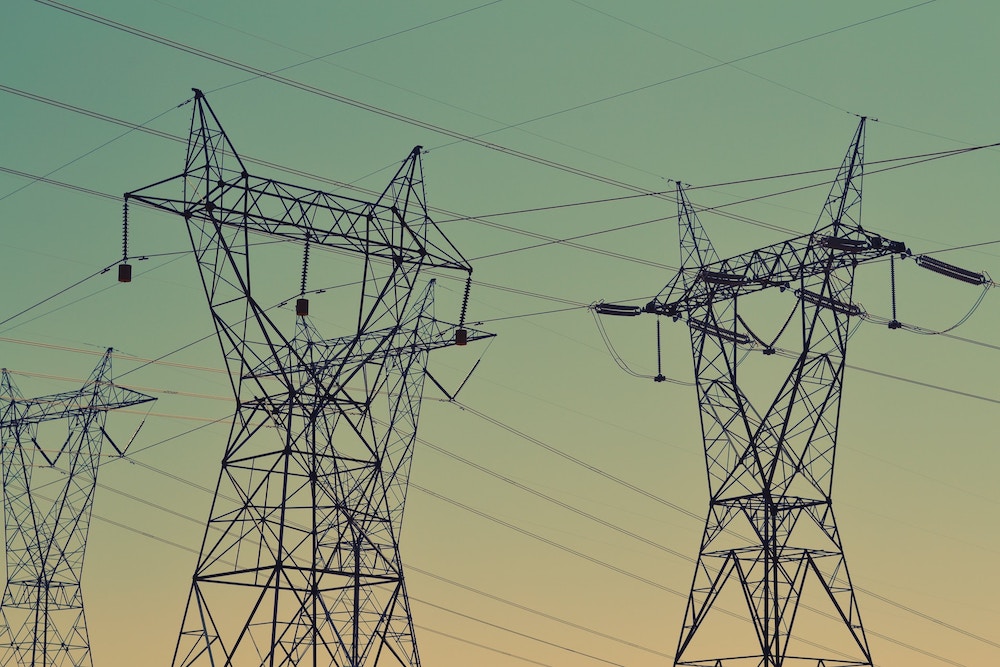
- Details
- By Tribal Business News Staff
- Energy | Environment
The U.S. Department of Energy said it will issue $48.4 million in grant funding to three states and nine tribal nations to modernize their electric grids and make them more resilient to climate change and natural disasters.
Last week’s announcement is the sixth round of funding for the DOE’s Grid Resilience State and Tribal Formula Grants program, which is supported by the Bipartisan Infrastructure Law. The DOE has announced more than $455 million in grants to 24 tribal entities, 28 states, one U.S. territory, and the District of Columbia since May 2023.
The grants will be used for a variety of projects including upgrading transmission and distribution lines to make them more resistant to extreme weather events; installing battery storage systems; developing new technologies; and workforce development.
"These grants will help make our electric grids more resilient to climate change and natural disasters," U.S. Secretary of Energy Jennifer M. Granholm said in a statement. "This is essential to ensuring that everyone has access to reliable and affordable energy."
The nine tribes, which will receive a total of $3.6 million in funding in this round, include:
- Blackfeet Tribe of the Blackfeet Indian Reservation will use its $458,123 grant to decrease the frequency and duration of electrical outages on the Reservation and address the energy burden experienced by low-income tribal members and disadvantaged communities. The funding will also enhance the tribal workforce, update failing infrastructure, and advance energy justice by focusing on projects on the reservation with a preference for projects on trust lands.
- Chalkyitsik Village will use its $112,439 grant to support a continuous supply of power in the system and will improve grid reliability by decreasing the number of outages and improving the ability to recover after severe weather events. The grant funding will also be used to develop battery energy storage for critical facilities and will support addressing the energy burden experienced by low-income tribal members.
- Citizen Potawatomi Nation will use its $1.3 million grant to decrease the frequency and duration of electrical outages on the Reservation and address the energy burden experienced by low-income tribal members and disadvantaged communities. The grant funds will also enhance the tribal workforce, allow updates to failing infrastructure, and advance energy justice by focusing on projects on the reservation.
- Fort Sill Apache Tribe will use its $684,000 grant to ensure critical tribal facilities are not impacted by disruptive events such as extreme weather and will implement improved controls, automation, and communication technology to enhance local grid operations and control. Grant funds will also be used to address outdated or failing infrastructure and support tribal workforce development to support grid resilience measures.
- Galena Village (aka Louden Village) will use its $112,894 grant to support a continuous supply of power to consumers, reduce outage risks, develop projects and approaches for backup power, and advance partnerships with utilities to develop clean energy.
- Match-e-be-nash-she-wish Band of Pottawatomi Indians will use its $183,155 grant to ensure critical tribal community facilities are not impacted by extreme weather and other disruptive events and will address the energy burden faced by the tribal community. The grant funds will also be used to increase the skilled workforce within the tribe, support good-paying jobs, address capacity limitations, and invest in modernizing the energy infrastructure.
- Native Village of Port Graham will use its $181,493 grant to maintain a continuous supply of power that is acceptable to consumers, and will reduce outage risks, and improve the ability to recover from disruptive events. The grant funds will also support battery storage for critical facilities and improve partnerships between the Tribe and utilities to support affordability and improved service to tribal members.
- Seneca Nation of Indians will use its $479,021 grant to ensure critical community facilities are not impacted by extreme weather events and will address the energy burden experienced by low-income tribal members. The grant funding will also be used to increase the skilled tribal energy workforce, and invest in modernizing the electric grid, including addressing outdated or failing infrastructure.
- Summit Lake Paiute Tribe will use its $115,833 grant to ensure critical facilities are not impacted by disruptive events by providing backup power to enhance system adaptive capacity and will reduce disruptions to grid operations from extreme weather events. The grant funds will also increase the tribal workforce to support energy resilience, and will allow investments in grid modernization, while increasing electrification in response to evolving needs.
The Grid Resilience State and Tribal Formula Grants program is one of several DOE programs that are helping to modernize the electric grid. The DOE is also investing in research and development of new grid technologies, and it is working to improve the coordination of grid operations across different regions.
The DOE's investments in grid modernization are helping to create jobs and boost the economy. According to the DOE, the grid modernization industry is expected to create more than 400,000 jobs by 2030.
